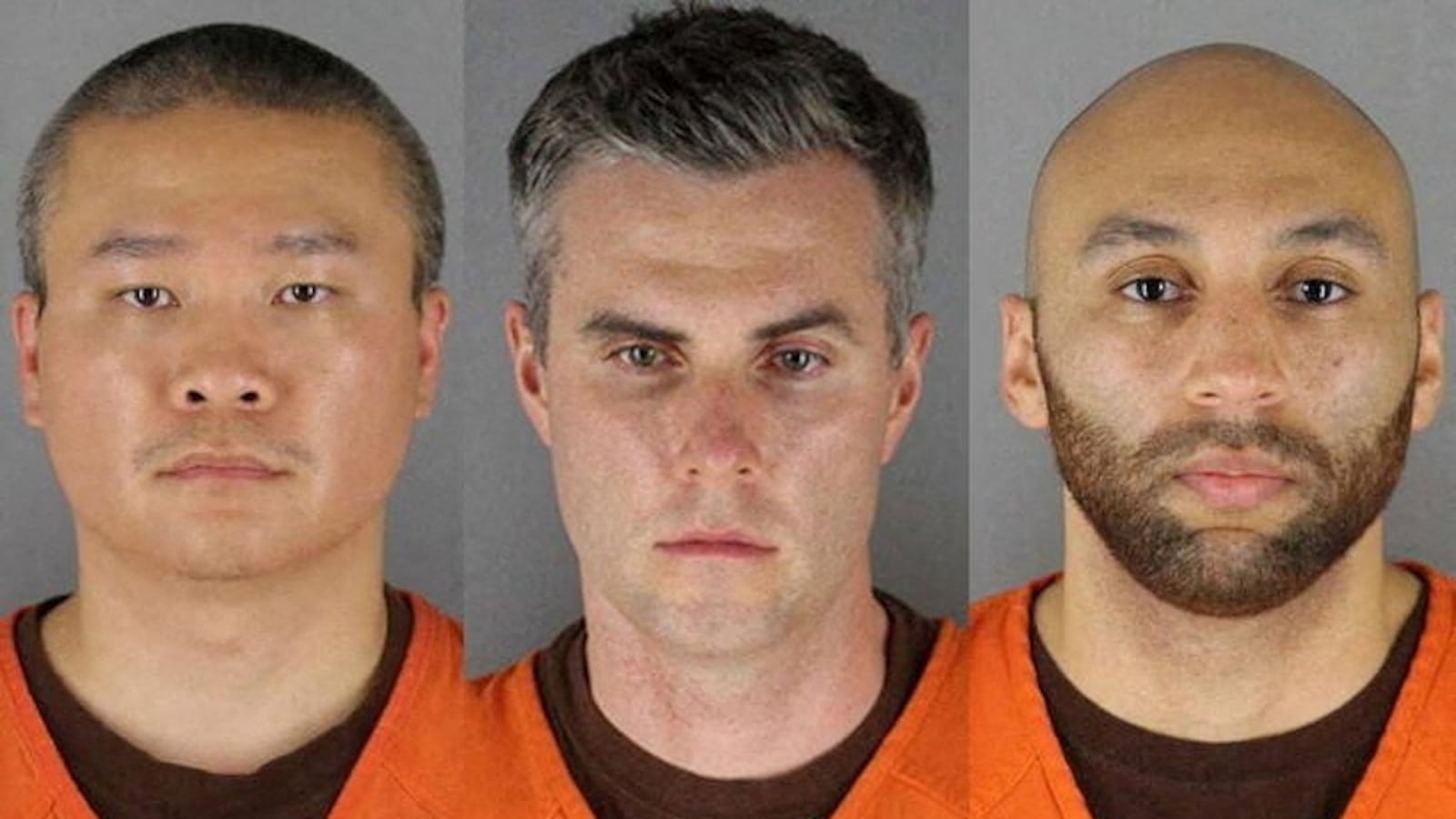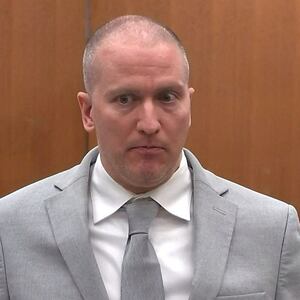When Derek Chauvin was convicted of murder for fatally kneeling on George Floyd for over nine minutes, the American criminal justice system took a very modest step toward holding killer cops accountable. But even as Chauvin faced decades in prison, none of the other cops on scene when he murdered the 46-year-old Black man begging for air had been convicted.
That changed on Thursday, when a federal jury found Tou Thao, J. Alexander Kueng, and Thomas Lane guilty of violating Floyd’s civil rights. The ex-cops were convicted on all charges, which accused the trio of failing to render medical aid to Floyd. Kueng and Thao were also charged for failing to intervene.
The verdict, which was reached after 13 hours of deliberation, will immediately serve as a benchmark for convicting bad cops in America, and specifically for cases when officers’ worst offense may be that they helped or failed to stop a killer colleague.
In addition to the guilty verdicts, the jury unanimously found their crimes resulted in Floyd’s death—a conclusion that will be crucial at the officers’ sentencing. Judge Paul Magnuson allowed the three men to leave the courthouse on pre-established bail conditions ahead of their sentencing. A date for that hearing has yet to be set.
Attorneys for the Floyd family applauded the verdict in a statement to The Daily Beast, saying that “today closes another important chapter in our journey for justice for George Floyd and his family.”
“These officers tried to devise any excuse that could let them wash the blood from their hands, but following these verdicts George’s blood will forever stain them,” the lawyers, including civil rights attorney Ben Crump, said. “Nothing will bring George Floyd back to his loved ones, but with these verdicts, we hope that the ignorance and indifference toward human life shown by these officers will be erased from our nation’s police departments, so no other family has to experience a loss like this.”
After police were called to Cup Foods, a convenience store in Minneapolis, over an allegedly counterfeit $20 bill on May 25, 2020, Chauvin murdered Floyd and became a national villain. But he was not alone.
Kueng and Lane helped hold Floyd down by his back and legs, respectively. And Thao kept an increasingly desperate crowd of onlookers who knew they were witnessing a crime at bay.
Unlike the state case that all three cops still have pending, the federal civil-rights trial was not about what the cops allegedly did to aid and abet Chauvin in committing murder and manslaughter. Instead, the case keyed on their failure to stop him before it was too late.
Specifically, federal prosecutors said all three willfully deprived Floyd of civil rights under the color of law—that is, as police officers—by failing to provide medical aid when he clearly needed it. Thao and Kueng were also charged with failing to intervene to halt Chauvin’s unreasonable use of force.
“They chose not to intervene, they chose not to aid Mr. Floyd,” Assistant U.S. Attorney Manda Sertich said in closing arguments on Tuesday. “This is a crime. The defendants are guilty as charged.”
During the trial, all three former officers took the stand in their own defense, claiming they received inconsistent training about what to do during the chaotic situation—and deferred to Chauvin and his seniority. The trio’s testimony can now be used against them during their state trial that is set to begin in June.
“The Floyd family will have to relive the traumatic disregard for George’s life once again in June, when these officers will stand trial in state court. We hope, and we expect, that these officers will once again be held accountable for their lack of humanity,” the family’s lawyers said Thursday.
After being convicted of murder in state court in April, Chauvin pleaded guilty in December to willfully depriving Floyd of his constitutional rights by failing to render him medical aid.
“I think I would trust a 19-year veteran to figure it out,” Thao told jurors in describing why he followed Chauvin’s lead.
Kueng, during his own testimony, insisted he did not realize that Floyd was in “serious medical need,” while Lane argued that footage of the incident shows he asked to “roll” Floyd onto his side to medically assess him.
Sertich, however, picked apart the trio’s analysis of the deadly arrest, noting that the whole incident was not about “split-second decisions.”
“It was 569 seconds,” Sertich said, referring to the over nine minutes that Chauvin pressed his knees into Floyd’s neck and back while witnesses pleaded for him to stop. “They did nothing.”
Defense attorneys for the trio also argued that the charges alleging that the cops “willfully” failed to provide Floyd aid or stop Chauvin do not apply here, because what happened in May 2020 was not an intentional act.
Robert Paule, the defense attorney representing Thao, stressed that “just because something has a tragic ending doesn’t mean it’s a crime.”







